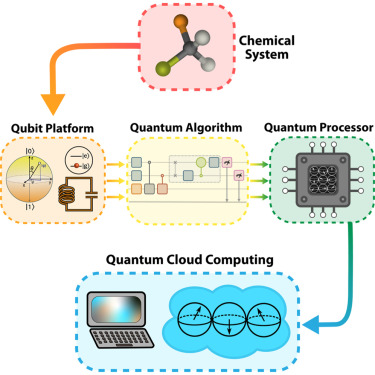- Published on
Quantum Computing Breaking the Classical Barrier
- Authors

- Name
- Adil ABBADI
Introduction
Classical computing, the foundation of modern computing, has been the cornerstone of technological advancements for decades. However, as transistors reach atomic scales, they begin to encounter the fundamental limits imposed by physics. This is where quantum computing steps in, promising to break the classical barrier and unlock unprecedented processing power.

- The Limits of Classical Computing
- The Quantum Advantage
- Quantum Algorithms and Applications
- Challenges and Opportunities
- Conclusion
- Join the Quantum Revolution
The Limits of Classical Computing
Moore's Law, which states that the number of transistors on a microchip doubles approximately every two years, has driven the exponential growth of computing power. However, as transistors approach atomic scales, they encounter significant challenges:
- Leakage current: As transistors shrink, they become prone to leakage current, leading to increased power consumption and heat generation.
- Thermal noise: At the atomic scale, thermal fluctuations can cause errors in computation, compromising the reliability of classical systems.
These limitations have led to a slowing down of progress in classical computing, paving the way for quantum computing to take center stage.
The Quantum Advantage
Quantum computing exploits the principles of quantum mechanics to perform computations that are fundamentally different from classical computing. The core components of a quantum computer are:
- Qubits (Quantum Bits): Instead of classical bits, which can only be 0 or 1, qubits exist in a superposition of both 0 and 1, enabling parallel processing of multiple possibilities.
- Quantum Gates: The quantum equivalent of logic gates, these operations manipulate qubits to perform complex computations.
The qubit's ability to exist in multiple states simultaneously enables quantum computers to process vast amounts of data exponentially faster than classical computers. This is demonstrated by Shor's algorithm, which can factor large numbers exponentially faster than any known classical algorithm.
# Example of a simple quantum circuit
from qiskit import QuantumCircuit, execute
qc = QuantumCircuit(2) # Create a quantum circuit with 2 qubits
qc.h(0) # Apply a Hadamard gate to qubit 0
qc.cx(0, 1) # Apply a controlled-NOT gate from qubit 0 to qubit 1
job = execute(qc, backend='ibmq_qasm_simulator') # Execute the circuit on a simulator
result = job.result() # Retrieve the result
print(result.get_counts(qc)) # Print the measurement outcome
Quantum Algorithms and Applications
Several quantum algorithms have been developed to tackle complex problems in various domains:
- Shor's Algorithm: Factor large numbers, enabling the breaking of certain encryption algorithms.
- Grover's Algorithm: Search an unsorted database exponentially faster than classical algorithms.
- Quantum Approximate Optimization Algorithm (QAOA): Solve optimization problems more efficiently than classical methods.
Quantum computing has far-reaching implications for fields such as:
- Cryptography: Develop unbreakable encryption methods and enhance data security.
- Optimization: Solve complex optimization problems in logistics, finance, and more.
- Materials Science: Simulate complex molecular structures, enabling breakthroughs in material design and discovery.

Challenges and Opportunities
While quantum computing holds immense promise, it's not without its challenges:
- Quantum Noise and Error Correction: Developing robust methods to correct errors caused by environmental noise and qubit decoherence.
- Scalability: Building larger, more complex quantum systems that can solve real-world problems.
However, these challenges also present opportunities for innovation and collaboration. As researchers and industries work together, we can expect significant breakthroughs in the coming years.
Conclusion
Quantum computing is poised to revolutionize the way we approach complex problems, breaking the classical barrier and unlocking unprecedented processing power. As we continue to explore the vast potential of this technology, we may uncover new applications and possibilities that will shape the future of computing.
Join the Quantum Revolution
Stay up-to-date with the latest advancements in quantum computing and explore the exciting possibilities this technology has to offer. The future is quantum – be a part of it!
